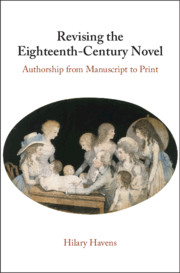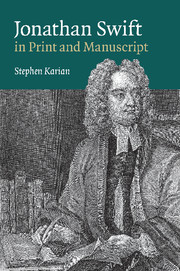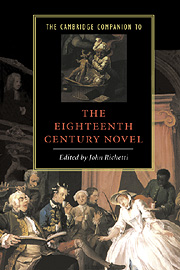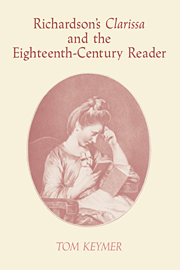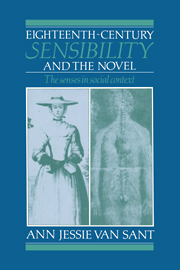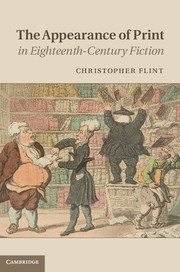Revising the Eighteenth-Century Novel
Authorship from Manuscript to Print
- Author: Hilary Havens, University of Tennessee, Knoxville
- Date Published: October 2019
- availability: Available
- format: Hardback
- isbn: 9781108493857
Hardback
Other available formats:
eBook
Looking for an inspection copy?
This title is not currently available for inspection. However, if you are interested in the title for your course we can consider offering an inspection copy. To register your interest please contact [email protected] providing details of the course you are teaching.
-
Revisions form a natural part of the writing process, but is the concept of revision actually an intrinsic part of the formation of the novel genre? Through the recovery and analysis of material from novel manuscripts and post-publication revisions, Hilary Havens identifies a form of 'networked authorship'. By tracing authors' revisions to their novels, the influence of familial and literary circles, reviewers, and authors' own previous writings can be discerned. Havens focuses on the work of Samuel Richardson, Frances Burney, Jane Austen, and Maria Edgeworth to challenge the individualistic view of authorship that arose during the Romantic period, and argues that networked authorship shaped the composition of eighteenth-century novels. Exploring these themes of collaboration and social networks, as well as engaging with the burgeoning trend towards textual recovery, this work is an important contribution in the study of eighteenth-century novels and their manuscript counterparts.
Read more- Proposes a new model of eighteenth-century authorship and its dependence on the networks in which writers lived and worked
- Uses the act of revision to formulate new interpretations and understandings of Samuel Richardson, Frances Burney, Jane Austen, and Maria Edgeworth, as well as Laurence Sterne, Matthew Lewis, and William Godwin
- Discusses many previously unexplored manuscripts and uses digital paleography to recover deleted portions of manuscripts
Reviews & endorsements
'… Revising the Eighteenth-Century Novel persuasively delivers on its premises and also recommends a novel tool that scholars will likely find valuable in their reconstruction of physically impaired manuscripts.' A. W. Lee, Choice
See more reviews'This study's careful attention to a massive archive makes it a valuable piece of scholarship … Richardson, Burney, Austen, and Edgeworth were each prolific writers and Havens' thorough coverage of all four is a service to the field … [and] because of its accessible focus on themes of gendered (dis)empowerment in the lives and works of its canonical figures, I can pay this study the tribute, rarer than it should be, of saying that I expect to recommend it to undergraduates …' Jacob Sider Jost, The Eighteenth-century intelligencer
'Hilary Havens's Revising the Eighteenth-Century Novel: Authorship from Manuscript to Print is another important intervention in the history of both the novel and ideas of authorship … Havens has recovered previously hidden evidence about revision using digital palaeography - a powerful and fruitful new technology.' David Womersley, SEL Studies in English Literature 1500–1900
'Revising the Eighteenth-Century Novel is a valuable contribution to our understanding of how the genre emerged and how authors crafted their texts in a social world over time … The real impact of Revising the Eighteenth-Century Novel is its central argument: that novels were the creation of many people and many influences, that even in their printed form they should not be considered textually stable or 'final,' and that all literary scholars need to be more aware of the influences that created the text that they are reading and more open to the idea that those influences may have contradicted the initial intent of the author.' Leah Orr, Reception: Texts, Readers, Audiences, History
'With careful structuring, and a mostly lucid style, this industrious book claims new insights into the 'networks' that, via Bruno Latour, are already well established as significant in this field.' Min Wild, Times Literary Supplement
'… this is essentially an interpretative, critical book … This is a rewarding study, one to argue with and learn from.' Aileen Douglas, Eighteenth-Century Fiction
'Havens's book is a must-read for people interested in authorial networks and revision, regardless of the period and authors they study, and exceptionally useful for those interested in eighteenth-and early nineteenth-century authorship, and manuscript and publication practices, as well as scholars of Richardson, Burney, Austen, Edgeworth, Sterne, Lewis, and Godwin. Revising the Eighteenth-Century Novel ultimately not only provides excellent examples and amazing insight into 'authorship from manuscript to print,' as the book's subtitle explains, but also asks its readers to understand authorship as a network built upon reading, writing, dialogue, and revision. After one reads Havens's book, it would be impossible not to do that.' Misty Krueger, Eighteenth-Century Life
'In developing 'a model of 'networked authorship',' Havens contributes to a growing scholarship that recovers eighteenth-century writing practices and book culture from overdetermined interpretations rooted in the 'individualistic view of authorship that arose during the Romantic period.' Mark Alan Mattes, Eighteenth-Century Studies
'This is a compact but powerful book. Much of the evidence is new, and the argument is salient.' George Justice, Studies in the Novel
'The organizational structure of the book is water-tight, clear, and lends itself well to teaching … Revising the Eighteenth-Century Novel is likely to be influential.' Emily Friedman, The Review of English Studies
'Revising the Eighteenth-Century Novel remains an important entry in a growing body of scholarship on eighteenth-century manuscripts and literary circles. Taken together, this may do for the novel what twentieth-century criticism did for early modern drama-demonstrating that the text is not a singular 'event' emerging from a singular great voice, but an ever-shifting network of processes, responses and contributions that can open up fresh interpretative possibilities.' Natasha Simonova, The Scriblerian and the Kit-Cats
Customer reviews
Not yet reviewed
Be the first to review
Review was not posted due to profanity
×Product details
- Date Published: October 2019
- format: Hardback
- isbn: 9781108493857
- length: 240 pages
- dimensions: 235 x 159 x 16 mm
- weight: 0.53kg
- contains: 2 b/w illus.
- availability: Available
Table of Contents
1. Samuel Richardson: 'fan fiction' and networked authorship
2. Frances Burney: obliterations and unending revisions
3. Jane Austen: revision as empowerment
4. Maria Edgeworth: scientific knowledge, didactic moralism, and her 'family jury of critics'.
Sorry, this resource is locked
Please register or sign in to request access. If you are having problems accessing these resources please email [email protected]
Register Sign in» Proceed
You are now leaving the Cambridge University Press website. Your eBook purchase and download will be completed by our partner www.ebooks.com. Please see the permission section of the www.ebooks.com catalogue page for details of the print & copy limits on our eBooks.
Continue ×Are you sure you want to delete your account?
This cannot be undone.
Thank you for your feedback which will help us improve our service.
If you requested a response, we will make sure to get back to you shortly.
×
